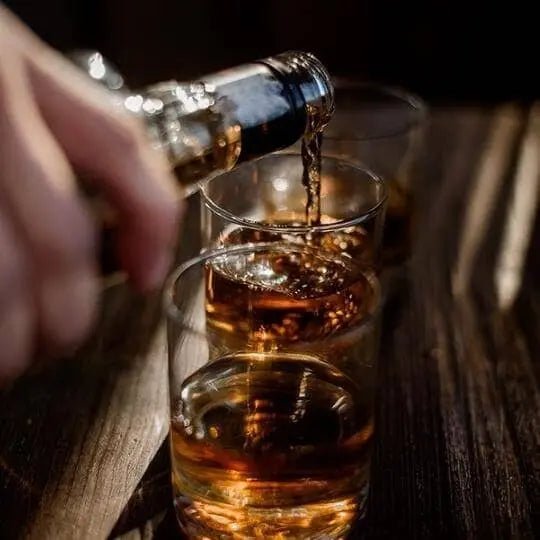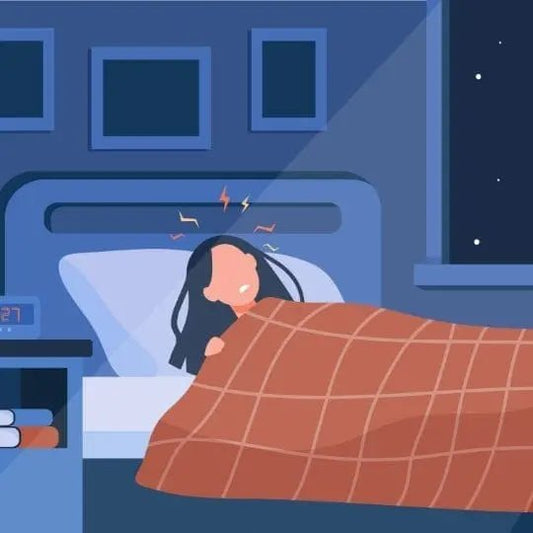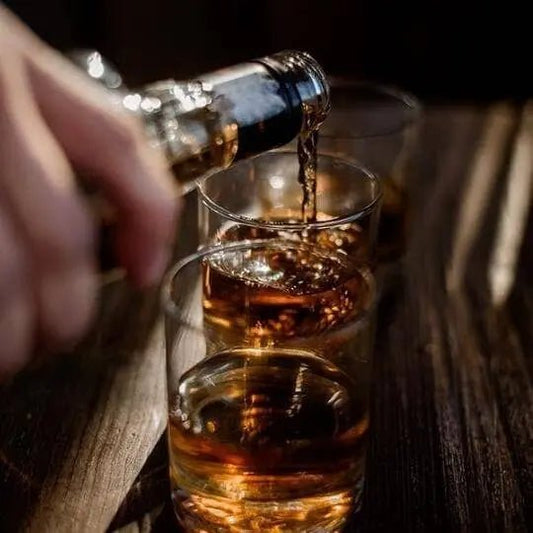Does Alcohol Impact Your Gains?

New Zealand has a big drinking culture. We all know alcohol is not great for us but some of us really enjoy having a few drinks from time to time. More and more research is being done on the effect alcohol has on muscle growth, recovery and body composition. Interesting results have been found so far. If you’re keen to know how your drinking habits might be impacting your gym results then read below. Although it is not optimal to drink regularly, it is possible to enjoy the odd beverage without undoing all of your progress.
How Does Alcohol Work?
Alcohol is a toxin. When you consume it, your body treats it the same way it would treat a poison; it tries to get rid of it as soon as possible. Although drinking might make us feel good temporarily, it confers no nutritional benefits and inhibits our ability to recover from exercise.
When you drink alcohol it goes through your stomach and small intestine, enters the bloodstream and eventually gets metabolised by the liver. The rate at which your body absorbs alcohol will depend on things like how strong your drink is and whether there is other food present. Eating alongside alcohol consumption can slow down the rate of absorption which is ideal if you don’t want to get too off your face.
The feeling of intoxication is felt when the alcohol is coursing through your bloodstream. How you feel when drinking tends to vary depending on the individual. Some get happy and relaxed while others feel more aggressive. Once the alcohol makes its way to your liver, it gets broken down and eventually eliminated from your body.
Other factors that affect your alcohol tolerance include weight, age, type of drink and sex. It is interesting that women feel the effects of alcohol more than men as they have less total body water and tend to be smaller individuals. However, research tells us women also metabolise it faster compared to men. This means that women shouldn’t try to outdrink their male counterparts but they can feel reassured that their bodies might be able to get rid of the toxins a little bit quicker.

Does Alcohol Make You Fat?
Often you hear people blaming alcohol for their unexplained weight gain. Additionally, a lot of people notice that they lose fat when they cut down on drinking. So does that mean alcohol makes you fat? The answer is not as simple as yes or no. Fat gain occurs when you consume more calories than you burn. Alcohol has seven calories per gram. If you consume too much of it, then weight gain is possible but not inevitable.
A single shot of vodka is around 85-124 calories. If you consume multiple shots in addition to food and mixers, the calories can add up quickly. However it is definitely possible to enjoy alcohol without increasing your waistline. If you know roughly how many calories you should be consuming every day, you can fit the odd drink into your goal. For example, someone who needs 2000 calories a day to maintain their weight won’t gain fat if they dedicate 200 of those calories to vodka. As long as they are within 2000 calories, they won’t increase their body weight. On the other hand, if you binge drink ten RTDs and smash a large combo on the way home from a night out, you might find weight maintenance slightly more difficult.
How Does Drinking Impact Muscle Growth
Studies show that alcohol has a detrimental impact on muscle protein synthesis. We could get into the weeds about the cellular processes that occur after drinking but all you really need to know is that drinking negatively affects your organs, nerves, hormones and more. Alcohol consumption interferes with your body’s preferred way of doing things and even decreases testosterone levels. This is partly why those trying to put on muscle should avoid regularly hitting the beers.
Even if you consume sufficient protein during the day, drinking alcohol will affect your body’s rate of absorption. It might be tempting to go out for some celebratory drinks after a tough competition or workout session but this is likely to do more harm than good. If you don’t mind feeling sore and don’t have specific goals regarding muscle, then feel free to enjoy a few boozy beverages. However if you’re serious about getting ripped and don’t want to ruin your progress, assume the role of sober driver and enjoy your social activities without wrecking your recovery. Feeling good on a Sunday is a priceless feeling that you won’t regret.
When Is The Best Time To Drink?
If you really can’t say no to alcohol, then it is wise to plan out which days you are going to have some drinks. We know for a fact that alcohol inhibits protein absorption and exercise recovery. This means that we should limit our consumption to days where we don’t have big gym sessions planned. Smashing out some one rep max deadlifts on the same day you have a bottomless brunch is not a smart idea. You will likely feel awful the following day and miss out on many of the benefits that could have resulted from a hard workout. However if you do your hard workouts earlier in the week and save the beverages for the weekend, the negative impact will be less severe.
How Much Is Too Much?
The amount of alcohol one should drink will depend on the individual. Some people are able to tolerate more alcohol than others due to genetic and environmental factors. As stated above, men can handle more alcohol on average compared to women. Other factors that come into play include individual genes, total body water and previous alcohol consumption.
Obviously the ideal amount is none but we don’t live in a perfect world. Some people don’t want to give up their wine habit and others love to indulge in the odd cocktail on a special occasion. The New Zealand government recommends keeping your consumption under two standard drinks per day or a maximum of ten per week. For reference, a standard drink would be 330ml of 4% beer or 100ml of 12.5% wine. If you know your alcohol tolerance is quite low then feel free to consume even less than this.
It’s always good practice to save alcohol consumption for special events. Although it may seem normal to end your busy day with a nice glass of wine, this doesn’t mean we should. Just because something is normalised, doesn’t mean it is beneficial or should be done.
Conclusion
If you can go without alcohol then you’re better off doing so. It all comes down to your personal goals and lifestyle. Asking some people to stay sober is a Sispheyan task whereas others don’t mind going without. If you’re serious about health and fitness then stick to the alcohol free options. However if you can fit the odd drink into your diet without experiencing decreased quality of life then feel free to do so. All we ask is that you make an informed decision and be aware that there





